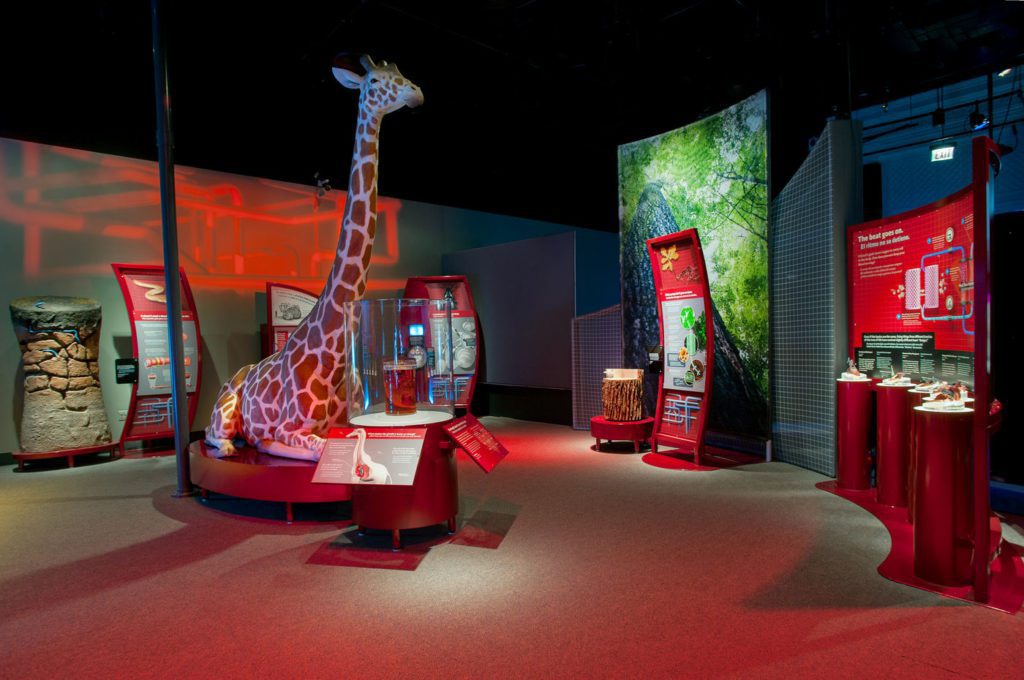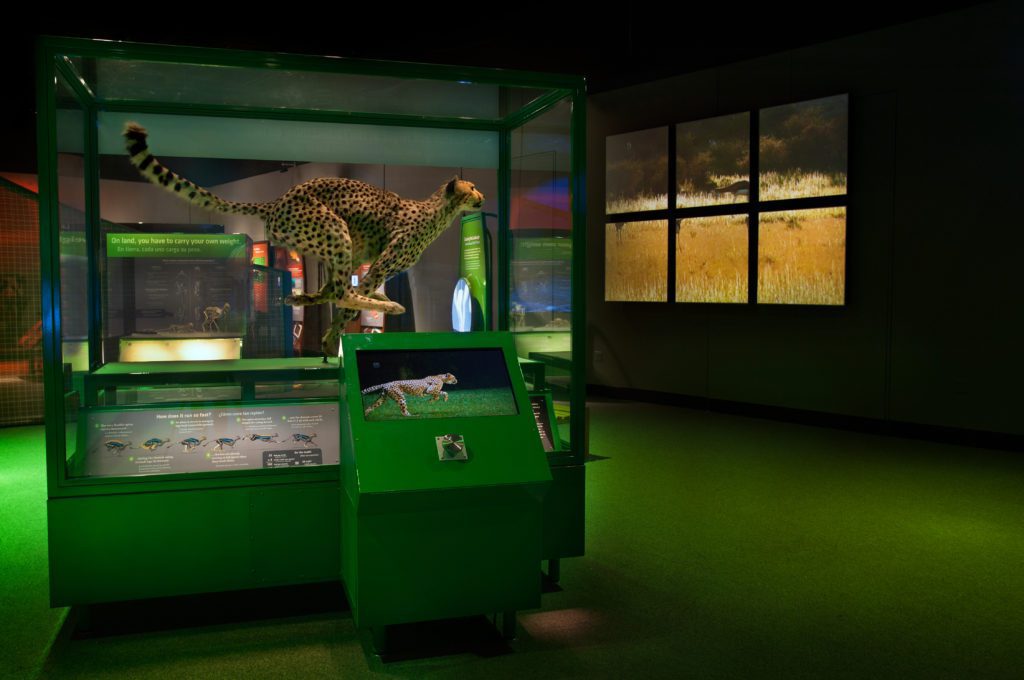
[May 10, 2022 – Pittsburgh, Pennsylvania] — Carnegie Museum of Natural History (CMNH) invites visitors to investigate the mechanics and innovation of the natural world with the traveling exhibition Nature’s Amazing Machines. Opening May 28, 2022, this immersive exhibition features scientific specimens, interactives, and stunning videos that encourage visitors of all ages to experience nature’s amazing engineering. The exhibition is presented in both English and Spanish.
Every living thing on Earth, from microbes to humans, is a machine built to survive. In Nature’s Amazing Machines visitors will discover how cheetahs run so fast; how the bite force of an extinct fish made it a top predator; how a Venus flytrap detects its next meal; and other evolutionary innovations that help organisms survive, move, and discover. The exhibition investigates how plants and animals endure the crushing forces of gravity and evolve in numerous other ways. Visitors also get to explore how natural engineering inspired human technological advances like Velcro and chainsaws.
“I’m thrilled to bring this internationally-touring exhibition to Pittsburgh,” said Gretchen Baker, the Daniel G. and Carole L. Kamin Director of CMNH. “One of the most rewarding parts of our work is creating opportunities for visitors to make new and surprising connections with nature. This exhibition is incredibly versatile, spanning plants to robots to insect eyes. Whether you’re a designer interested in biomimicry or a seasoned naturalist, there is something in this show that will forever change the way you perceive the natural world.”

“There are so many ‘wow’ moments,” said Sarah Crawford, CMNH’s Director of Exhibitions. “The interactives are particularly innovative and kinetic. Visitors can feel the effort required to pump blood to the top of a giraffe’s head or compare their grip to that of a chimpanzee. They flap wings to experience the impact different wingspans have on flight. We think this exhibition will live on in visitors’ memories long after they leave the museum.”
Nature’s Amazing Machines was developed by The Field Museum, Chicago, in partnership with the Denver Museum of Nature & Science, with generous support provided by The Searle Funds at The Chicago Community Trust and ITW Foundation.
Major support for CMNH’s presentation of Nature’s Amazing Machines is provided by PPG and PPG Foundation. The exhibition is sponsored by Cook Myosite, Highmark Blue Cross Blue Shield, and Dollar Bank.
Tickets to Nature’s Amazing Machines may be purchased in addition to regular museum admission and cost $6 for adults and $4 for members, children, students, and adults over the age of 65.
